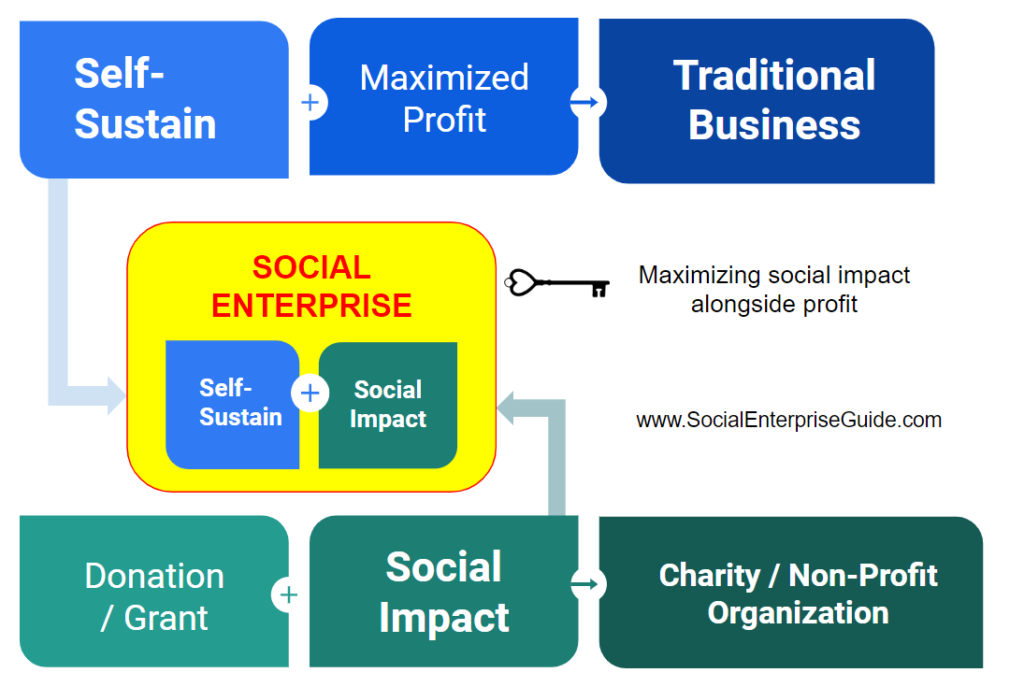The concept of social enterprise has been evolving rapidly. The lines of the traditional business, government and civil society sectors had become increasingly blurred in recent years as the social enterprise movements gain momentum.
Social enterprises can be structured as a for-profit or non-profit, and may take the form (depending on in which country the entity exists and the legal forms available) of a co-operative, mutual organization, a disregarded entity, a social business, a benefit corporation, a community interest company, a company limited by guarantee or a charity organization. They can also take more conventional structures. ~ Wikipedia

What is Social Enterprise?
In general, social enterprise model is a type of business model somewhere in between traditional business model and charity model.
According to Investopedia, a social enterprise or social business is defined as “a business that has specific social objectives that serve its primary purpose” . Social Enterprise Alliance has a similar view, as it defines social enterprise as “organizations that address a basic unmet need or solve a social or environmental problem through a market-driven approach” .
The key is:
Maximizing social impact alongside profit.

One of the differences between social enterprise and traditional business is on the business model, the profits derived from social enterprises are principally used to fund programs that could bring impact to the society, environment, and/or the economy. This brings to a very interesting question, is social enterprise a charity?
Excerpt from the book project: Every Achievement Counts.



